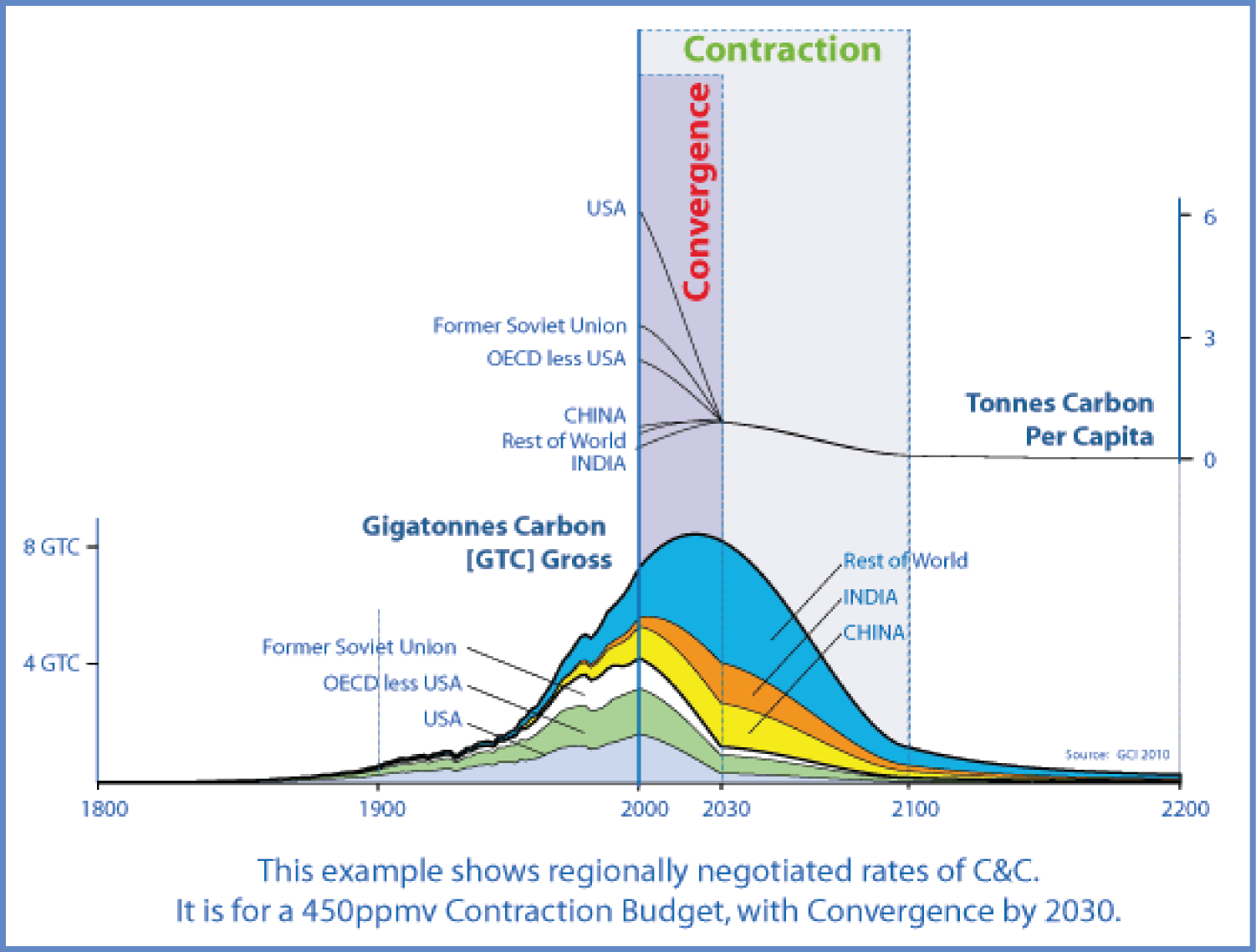The UN Climate Change Conference last December unfortunately came to a close with no agreement on global NEA goals. National Emissions Allocations are distributed through a global agreement of quotas of allowed emissions per capita for each country. This was proposed by the Global Commons Institute in 2000, and is conceptually accepted as a methodology by many countries. The NEA- based contraction convergence model applies an emissions cap to each country that declines rapidly over 40 years in order to reach the desired global atmospheric goal of 430 ppmv by 2052 (we're at 395 now). It's a cooperative effort, with developed nations assisting the third world countries in their reduction via the transfer of energy and pollution control technologies. Its strategy is that rapidly developing countries such as China and India must quickly pull back on their increasing emissions, and the UK and USA must simply implement immediate reductions in GHG emissions, period. This proved untenable to developed countries at Durban in December 2011, and so no global agreement was achieved. There is a consensus on the model, however, so the negotiation continues.
The Global Commons Institute [GCI] was founded in 1990. It has developed thisemissions management model that has gained support by many countries as a fair and effective model for reducing carbon emissions.
Mindfulness.
A proposed strategy for counteracting human activity in the biosphere as a comprehensive approach is called the Contraction and Convergence model. It sets up the framework whereby all countries accept a carbon budget that shrinks rapidly during the convergence phase between 2000 and 2030, resulting in a diminishment of carbon emissions to the levels seen in 1900 within 200 years. Will this be sufficient to preserve the planetary systems as we know them today? We may have a difficult time maintaining human life, not to mention the rest of the life systems that give us sustenance.
Mindfulness is concentration on the nature of life and all its parts. This way of seeing can allow us to act in effective ways that return our world to its natural balance and respect for life, rather than mindlessly burning resources into destruction. The science says that, and the experiential says that. Even simple logic says that.
So what are we waiting for?
Civitas on Contraction and Convergence
As with the 'Berlin Wall', the 'Climate-Firewall' can yet come down.
'Climate-detente' possible
at COP-17 with negotiated rates of C&C.
Why not Follow @aubreygci
Why not
Tweet


